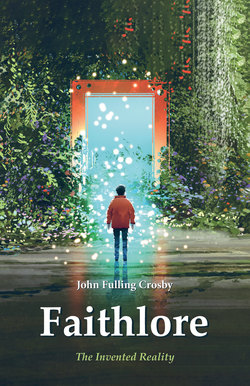Читать книгу Faithlore - John Fulling Crosby - Страница 5
На сайте Литреса книга снята с продажи.
Preface I Revealed Theology Versus Natural Theology
ОглавлениеOf first order is the necessity to separate by definition authoritative or “revealed” religious traditions from so-called “natural” religions, or religions arising out of natural expressions of plant, animal, and human life and nature as part and parcel of all creation, including the cosmos of both micro (quanta) and macro. An appeal to nature and/or to the forces of nature, including worship of the sun and the rhythms of our solar system and the galaxies of the universe (deism), is not to be equated with a godhead or god force that foreordains every human being into a personal I-Thou relationship with itself. Another way of saying this is to say simply that theism presupposes personal and intimate relationship between the theistic Godhead/Creator and the creature into which this God has breathed the ruach, or the breath of life (Gen 2:07; 6:17; 2 Sam 22:16).1
Traditionally, Christian theism is both immanent and transcendent. Historically speaking, deism is usually defined as being transcendent only, not immanent. Deism has been the dominant theology espoused by William Paley.2 Spinoza’s pantheism (God is All) and panentheism (God is in All) may be considered philosophical offshoots of deism and modern expressions of spiritualism
In contrast with natural theology, revealed or authoritarian/authoritative theology claims that God, Yahweh, Elohim, or Allah is the omnipotent and omniscient almighty force transcending the universe. Through revelation, the god force has revealed, and continues to reveal, its divine intention for all humankind (or at least to the faithful who seek to know its will).
Throughout these pages, the underlying question is this: to what extent are we justified in making the claim that nearly all religious or theological language is folkloric in nature, especially claims regarding Christian theistic propositions? Is there any empirical evidence, other than personal religious experience (anecdotal),3 that claims theism to be both valid and true? In short, is there any evidence to the contrary; i.e., is there any evidence that theism is not folklore, faithlore, or lore?
1. All Scripture references in this book are from the NRSV.
2. Paley, Natural Theology.
3. James, “Varieties of Religious Experience.”
